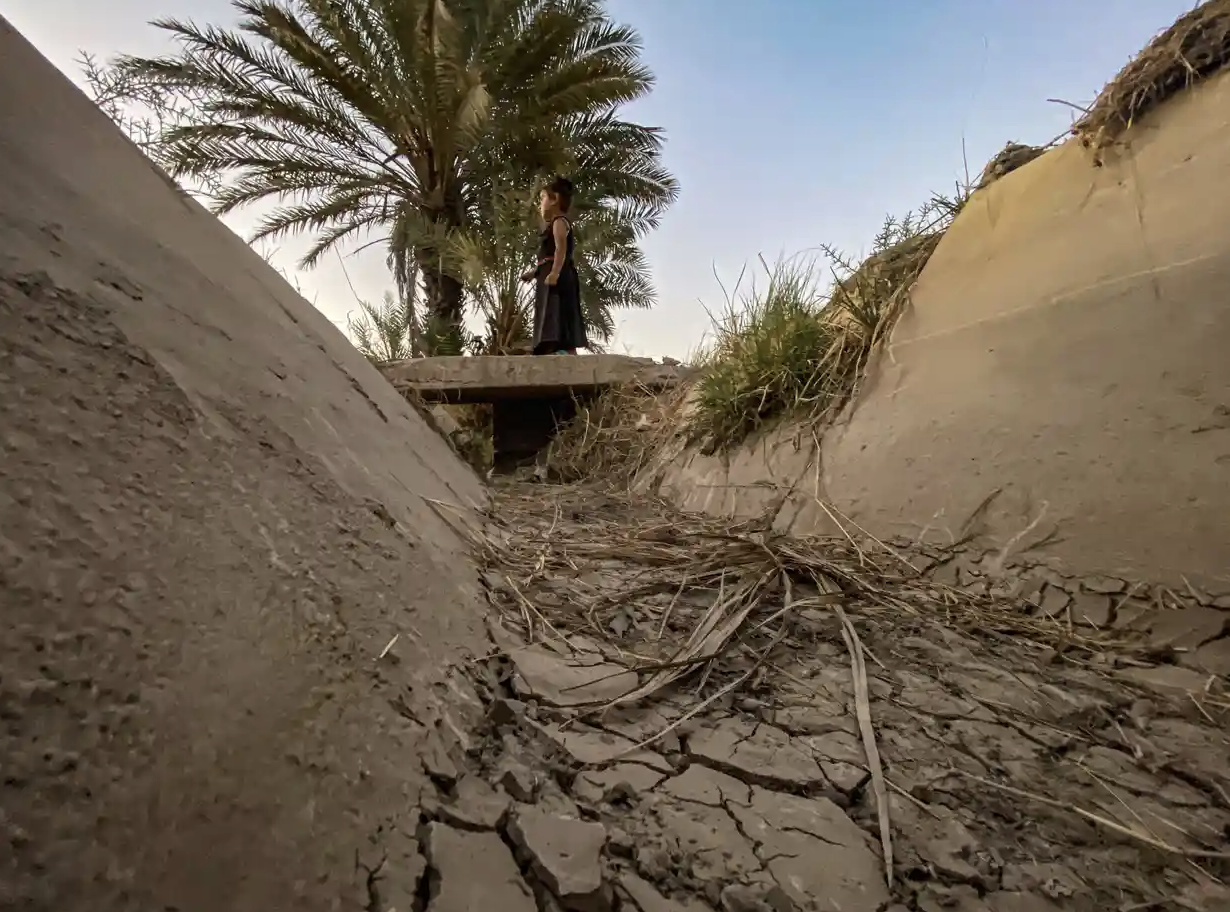“The Hour will not occur until the Euphrates recedes, uncovering a mountain of gold over which people will fight. Ninety-nine out of every hundred will be killed. And every man among them will say: ‘I might be the one who survives.” – Book 18, Hadith 15
The waters of the Euphrates are receding. Hydroelectric projects in upstream Turkey and Iran have begun choking the rivers that have for millennia served as the lungs of the Mesopotamian interior. In a region which feels the effects of climate change particularly acutely, seasonal droughts coupled with poor management practices threaten to upend life for the thousands of Iraqis living on the banks of these ancient rivers. Research suggests precipitation in Iraq will decrease by 15 to 20 percent this century, reducing the volume of water in the Tigris and Euphrates by up to 73 percent.
As water levels fall, saltwater tides from the Persian Gulf bleed into river deltas, killing livestock and poisoning barley and wheat fields. Farmers watch their livelihoods dry up. Repeated seasons of bad harvest mean they must either abandon their land, sell their emaciated cattle at marked-down prices, and migrate to the cities, or wait for a government response that has, so far, proven lackluster. In the shadow of contentious political battles in Baghdad, the periphery’s problems remain neglected.
There may be no mountain of gold beneath the Euphrates, but as drought floods the cities with refugees, the battle predicted by the Hadith takes new meaning. Exact figures on the displacement are hard to come by, as many newcomers to the cities prefer to stay unknown, but reports on the ground find new social tensions bubbling between city natives and rural transplants. In the southern city of Basra, plastic shantytowns have sprung up as refugees seeking to join the urban labor force gather around the outskirts.
For the newcomers, this reality takes some adjusting to—their work is temporary, often in construction or truck driving, and often insufficient for their needs. For Basra’s natives, the newcomers are seen as a drain on public resources, bringing crime and incompatible customs. Worse still, municipal officials point to the new influx of migrants to justify their political shortcomings, refusing to integrate them properly and thus exacerbating the tensions. When blackouts and fuel shortages strike southern Iraqi cities, the blame falls on the newcomers.
The refugee crisis shows no signs of slowing down. With salinity from the Gulf slowly climbing northward, it is estimated that 85 miles of river bank are now virtually barren. And while the issue in southern Iraq is particularly pronounced at present, climate scientists warn that the crisis is merely a warning of what is next to come. In the short term, aid groups predict that 12 million people in Iraq and Syria will lose access to water, food, and electricity.
For Egypt, where the population is nearly two and half times that of Iraq, an even larger refugee crisis looms on the horizon. Neighboring Ethiopia and Sudan are in the late stages of a massive hydroelectric project on a crucial tributary to the Nile. And if the results of an Egyptian scientific survey are to be trusted, the project could result in the destruction of 75 percent of Egypt’s fish farms, leading to the displacement of around 30 million people—making it the largest refugee crisis in history.
But even if the project were to be scrapped, like most countries in the region, Egypt faces a growing population and a drying landscape. Mediating water-sharing practices will certainly slow the destruction, but fundamentally, a permanent solution requires far more than just cooperation among Middle Eastern neighbors. While invasions and elections fill the newscycle, our world grows more dependent on oil and natural gas and the window for righting this ship closes. And though it may start as a drought, make no mistake: The knock-on effect of climate change will be broad social and cultural upheaval.
The societal queasiness in Iraq represents an early stage of this climate-induced instability. But when push comes to shove, desperate people will do what they must to support their loved ones. Throughout the last decade and a half, ISIS preyed on the victims of poor harvests and famine, promising fast cash and security when governments could not. It is not a leap to think that other jihadist groups might do the same. Where there is drought, displacement, friction, crime, and recruitment are sure to follow.
So it may come to pass that the same river banks that witnessed the birth of civilization 8,000 years ago now signal the early stages of a collapse.
